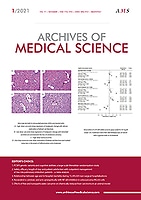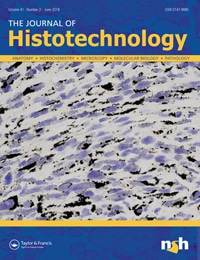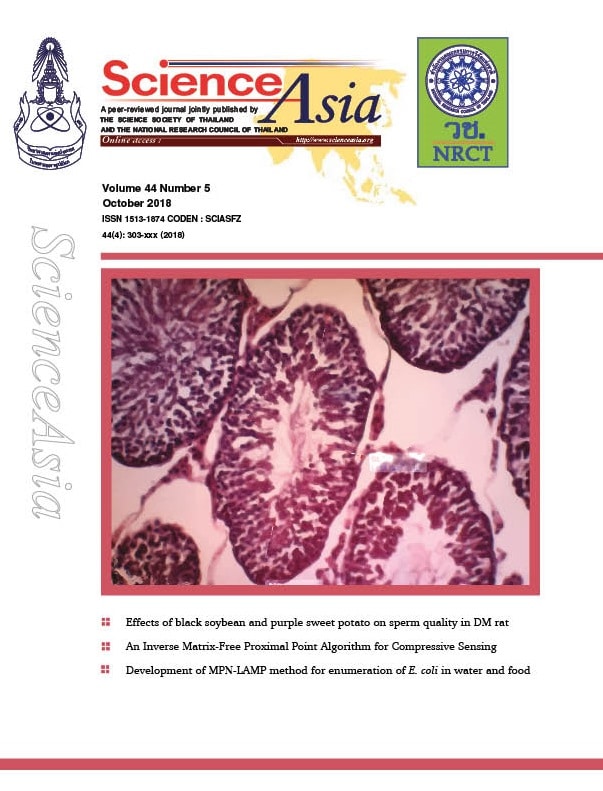
Aldosterone nongenomically induces angiotensin II receptor dimerization in rat kidney: Role of mineralocorticoid receptor and NADPH oxidase (2019)
Title : Aldosterone nongenomically induces angiotensin II receptor dimerization in rat kidney: Role of mineralocorticoid receptor and NADPH oxidase
Researcher : Sinphitukkul, K., Manotham, K., Eiam-Ong, S., Eiam-Ong, S.
Abstract :
Introduction: Previous in vitro studies demonstrated that aldosterone nongenomically induces transglutaminase (TG) and reactive oxygen species (ROS), which enhanced angiotensin II receptor (ATR) dimerization. There are no in vivo data in the kidney.
Material and methods: Male Wistar rats were intraperitoneally injected with normal saline solution, or aldosterone (Aldo: 150 μg/kg BW); or received pretreatment with eplerenone (mineralocorticoid receptor (MR) blocker, Ep. + Aldo), or with apocynin (nicotinamide adenine dinucleotide phosphate (NADPH) oxidase inhibitor, Apo. + Aldo) 30 min before aldosterone. Thirty minutes after aldosterone injection, protein abundances of dimeric and monomeric forms of AT1R and AT2R, and protein abundances and localizations of TG2 and p47phox, a cytosolic subunit of NADPH oxidase, were determined by Western blot analysis and immunohistochemistry, respectively.
Results: Protein abundances of dimeric forms of AT1R and AT2R were enhanced by 170% and 70%, respectively. Apocynin could block dimeric forms of both receptors while eplerenone inhibited only AT2R. Monomeric protein levels of both receptors were maintained. Aldosterone significantly enhanced TG2 and p47phox protein abundances, which were blunted by eplerenone or apocynin. Aldosterone stimulated p47phox protein expression in both the cortex and the medulla while TG2 was induced mostly in the medulla. Eplerenone or apocynin normalized the immunoreactivity of both TG2 and p47phox.
Conclusions: This is the first in vivo study demonstrating that aldosterone nongenomically increases renal TG2 and p47phox protein expression and then activates AT1R and AT2R dimerizations. Aldosterone-stimulated AT1R and AT2R dimerizations are mediated through activation of NADPH oxidase. Aldosterone-induced AT1R dimer formation is an MR-independent pathway, whereas the formation of AT2R dimer is modulated in an MR-dependent manner.
Keywords: NADPH oxidase; aldosterone; angiotensin II receptor dimerization; mineralocorticoid receptor; nongenomic action; rat kidney.
Link to Academic article: DOI: 10.5114/aoms.2019.87135
Journal : Archives of Medical Science, 2019, 15(6).
Bibliography : Sinphitukkul, K., Manotham, K., Eiam-Ong, S., & Eiam-Ong, S. (2018). Aldosterone nongenomically induces angiotensin II receptor dimerization in rat kidney: role of mineralocorticoid receptor and NADPH oxidase. Archives of Medical Science, 15(6), 1589–1598.

Nongenomic action of aldosterone on colocalization of angiotensin II type 1 and type 2 receptors in rat kidney (2018)
Title : Nongenomic action of aldosterone on colocalization of angiotensin II type 1 and type 2 receptors in rat kidney
Researcher : Sinphitukkul, K., Manotham, K., Eiam-Ong, S., Eiam-Ong, S.
Abstract : Previous in vitro studies have demonstrated that angiotensin II type 1 and type 2 receptors (AT1R and AT2R) are co-localized and can form AT1R/AT2R dimerization in rat proximal tubular cells. Aldosterone non-genomically enhances angiotensin II receptor dimerization. We found no other in vivo studies in the literature regarding the effect of aldosterone on colocalization of AT1R and AT2R in whole kidney. Male Wistar rats were intraperitoneally injected with either normal saline solution (sham group) or aldosterone (experimental group). Colocalization of renal AT1R and AT2R proteins was examined by double immunohistochemical staining. The colocalization of AT1R and AT2R proteins was more prominent in the glomerulus, distal convoluted tubules, and cortical collecting ducts while colocalization was weak and diffused in the proximal convoluted tubules and peritubular capillaries in both groups. Our in vivo study showed aldosterone did not alter a constitutive colocalization of AT1R and AT2R proteins in the renal cortex and medulla. However, these proteins were colocalized more prominently in the renal cortex.
Keywords: Aldosterone, angiotensin II receptors, nongenomic action, protein colocalization, rat kidney
Link to Academic article: https://doi.org/10.1080/01478885.2018.1438756
Journal : Journal of Histotechnology, 2018, 41(2).
Bibliography : Sinphitukkul, K., Manotham, K., Eiam-Ong, S., & Eiam-Ong, S. (2018). Nongenomic action of aldosterone on colocalization of angiotensin II type 1 and type 2 receptors in rat kidney. Journal of Histotechnology, 41(2), 58–65.

Nongenomic effect of aldosterone on angiotensin II type 1 receptor dimerization in human renal proximal tubular cells: Implications for endoplasmic reticulum stress (2018)
Title : Nongenomic effect of aldosterone on angiotensin II type 1 receptor dimerization in human renal proximal tubular cells: Implications for endoplasmic reticulum stress
Researcher : Sinphitukkul, K., Manotham, K., Eiam-Ong, S., …Inagi, R., Eiam-Ong, S.
Abstract : In vitro studies have showed that aldosterone increases oxidative stress molecules through a nongenomic effect. Oxidative stress induces angiotensin II type 1 receptor (AT1R) dimerization and endoplasmic reticulum (ER) stress, leading to renal tubular damage. However, the nongenomic effect of aldosterone on AT1R dimerization and ER stress in renal cells has not been determined. Here, we examined the nongenomic action of aldosterone in renal proximal tubular epithelial cells (PTECs) to better understand the underlying mechanisms. HK-2 cells, human renal PTECs, were exposed to vehicle or aldosterone for 30 min. In two additional groups, the cells were pretreated with eplerenone, a mineralocorticoid receptor (MR) blocker or apocynin, an NADPH oxidase inhibitor, for 30 min before aldosterone incubation. Protein abundances of dimeric/monomeric forms of AT1R, p47phox (a cytosolic part of NADPH oxidase), and activating transcription factor 4 (ATF4), a transcription factor responsive to ER stress, were determined by Western blotting. Aldosterone nongenomically increased plasma membrane protein expression of AT1R dimeric forms in a time- and dose-dependent manners. The levels of the cytosolic p47phox protein declined while the membranous protein level was enhanced following aldosterone treatment. The aldosterone induced alteration in these two proteins was abolished by pretreatment with eplerenone or apocynin. In addition, aldosterone (100 nM) induced nuclear ATF4 protein accumulation in a time-dependent fashion, which was blocked by apocynin and partially attenuated by eplerenone. Aldosterone nongenomically increased AT1R dimerization and nuclear ATF4 protein accumulation dependent on MR and NADPH oxidase activation. Hence aldosterone could induce AT1R dimerization and activate the endoplasmic reticulum stress response.
Link to Academic article: doi: 10.2306/scienceasia1513-1874.2018.44.332
Journal : ScienceAsia, 2018, 44(5).
Bibliography : Sinphitukkul, K., Manotham, K., Eiam-Ong, S., Nangaku, M., Inagi, R. & Eiam-Ong, S. (2018). Nongenomic effect of aldosterone on angiotensin II type 1 receptor dimerization in human renal proximal tubular cells: Implications for endoplasmic reticulum stress. ScienceAsia, 44(5), 332–339.